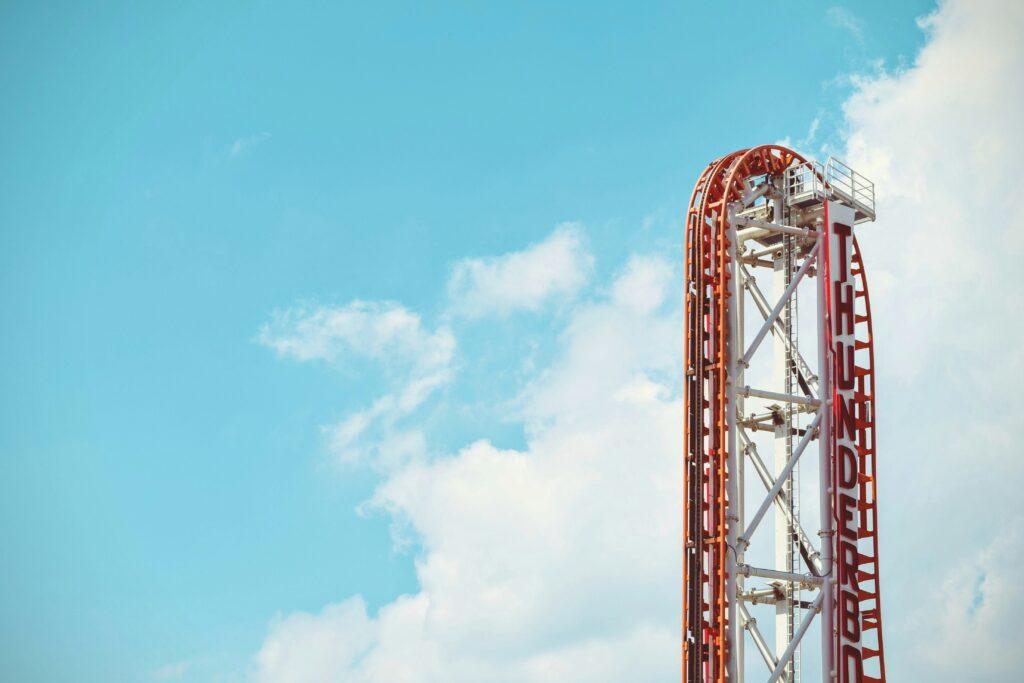
Photo by Tim Gouw on Unsplash
Recently, I realised how boring I had made my own life.
That’s not to say my life is objectively ‘boring’. To many it probably seems I do lots of fun and adventurous things. But subjectively, it’s felt unexciting. The things I’ve been doing haven’t felt particularly enjoyable.
In the quest for commitment, consistency and hailing ‘the grind’, I seemed to lose the idea that things were meant to be fun.
It’s probably no wonder that by the beginning of this year I found it so hard to motivate myself to do pretty much anything. Everything seemed tiring and exhausting.
Through this process, I think I lost a part of myself. I was modelling myself on the ‘boringly consistent’ types – gym everyday, unremarkable but consistent small gains leading to exponential growth.
Don’t get me wrong, there’s a lot to be said about this way of being. And I’ve certainly learnt lots about the importance of committing myself to what I say I will do.
I think I have been suppressing my chaotic nature. I’m an emotional being who thrives upon a mix of planned and spontaneous excitement. It’s what makes me buzz and really thrive in life.
In the quest to be regulated individuals within a society, I think a lot of us implicitly learn that being quirky is something to lose with age. Such ways of being are tolerated with youth, but in adulthood we are meant to give up such frivolities.
In my own effort to grow up and become independent, I think I lost that sense of fun and freedom in life. Everything needed to be a goal to be achieved, or something to improve upon. Only in my 30s am I taking the time to regain my sense of liberty.
My life realisations don’t come without challenges. My life feels more like a rollercoaster than ever – with greater vulnerability comes greater lows. These can be pretty damned tough. But the highs are also far more satiating and joyous. And now that I’ve experienced them, I couldn’t imagine a life without those amazing feeling again.
I’ve realised how much I enjoy people’s company. In some senses this isn’t a surprise for those people who have seen me going around speaking to people. Yet I’ve also had intense periods of reclusiveness too. I think this paradoxical nature has made it hard to understand what was going on. But I think this has been down to me finding it hard to find my place. In those spaces, it was easier to withdraw into a nihilistic pessimism to protect myself.
The challenge now for me is to figure out how I ride this rollercoaster without crashing. As my energy slowly returns, the temptation is to just fill my days with more people and events. Yet I’m not actually at a state where my body can quite handle that either.
Part of understanding my neurodivergence is seeing that my brain does not work in a particularly logical way. The more logical way of seeing the world would be that we have so much units of energy in a day and that therefore we can complete that many activities.
But for me, sometimes a small task can take me hours, whilst at other moments I can also do an incredible amount in an extremely short amount of time.
Before ever realising that my brain was wired different, I always saw the importance of momentum. There have been weeks where I have done the amount that people would do in several months, whereas the last few months have been extremely slow going. There were points that I put off simple tasks like folding my laundry for weeks on end, only to find it took me 15 minutes.
It’s why it’s so important to connect with ourselves to really understand how to live. The moment we try to overly rationalise the way we work as humans is the moment that we lose our understanding of what our bodies are really saying.
As an example, let’s take the idea of a night out. Many of us experienced this during our university days. We kept insisting to our friends that we were tired to go out. Later on we find ourselves buzzing with energy on the dance floor at 3am.
If our energy was based upon rational, measurable units, this would not be possible. Yet our bodies abilities to seemingly create energy is abundant. It’s probably why we feel more awake after exercising than before it too.
What makes this difficult is understanding the difference between what activities will revitalise us, and when we are doing something by simply struggling through. This is confusing because the same activities can be both things depending on the circumstances.
I’m much more on the overcommitment scale of things. I love having new and exciting things for me each day. But I’ve also learnt the importance of empty time without needing to rush around too. I’m still a work in progress on this, and probably will be for the rest of my life
But fundamentally, it’s important to keep doing things that feel fun. Fun is so subjective that sometimes these can be very mundane things. I see that for many people, they don’t need their lives to be so spontaneous – they are happy with the daily rhythm and stability.
But I also see that I am not one of those people.